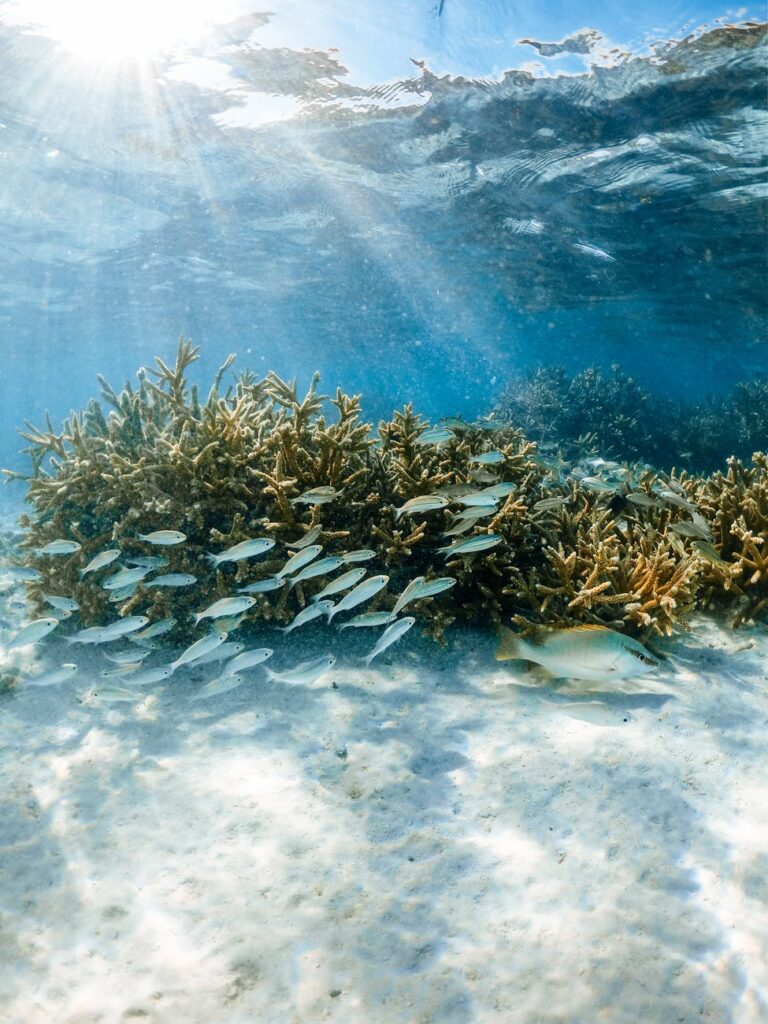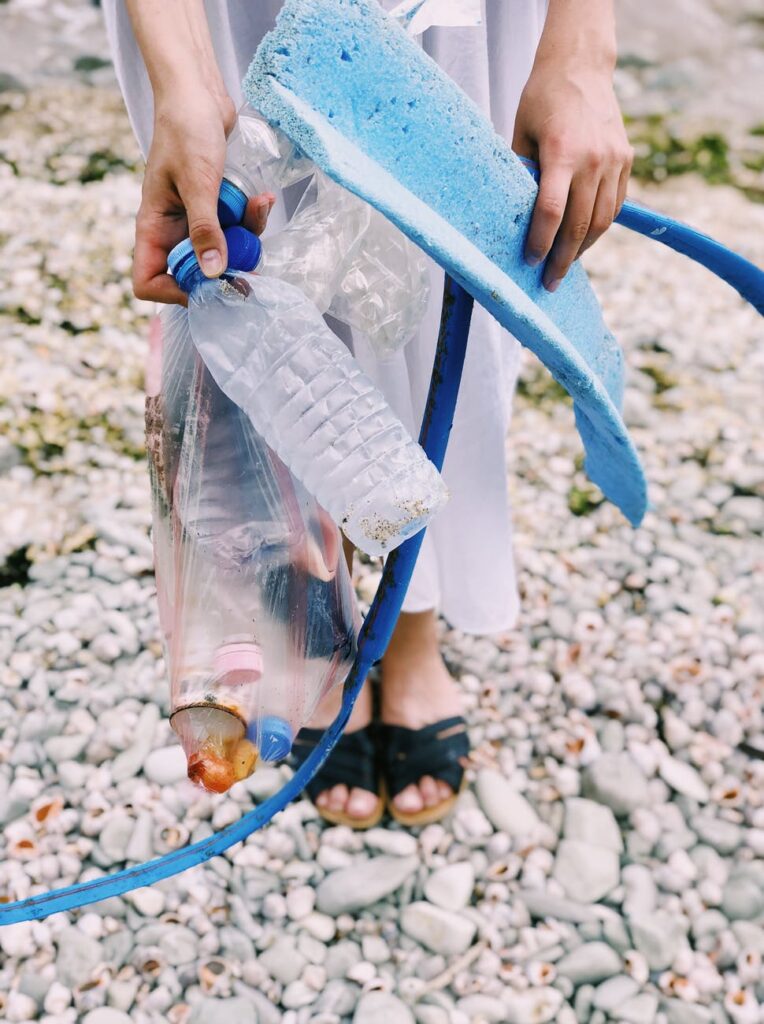Let’s not beat around the bush: sustainability and travel are often at odds with each other. It is virtually impossible not to leave a footprint when you travel. You can reduce that ecological footprint by making sustainable choices when traveling. Sustainable travel means that you take into account the environment, the well-being of the population and that you have respect for nature and culture. Sometimes small choices and adjustments can make a big difference. In this article we give 10 tips that everyone can easily apply while traveling.
1. Never buy anything from children
In many developing countries, children are used to sell things on the street or to beg. This happens simply because travelers are more likely to find children sad and more difficult to say “no” to a cute face than to an adult man or woman. Children shouldn’t beg or sell things on the street and the only way to stop this is by never buying from or giving money to a child. Of course, always be nice when you reject something, even when the child is walking along and whining. After all, that child is not there of its own volition.
2. Respect the rules of the underwater world
The number one rule when you go snorkeling or diving: don’t touch anything underwater! The coral dies if you touch it and a lot of coral has died in the last decades so let’s be careful with it. Also, do not touch animals such as whale sharks or turtles. Most marine life has very thin and fragile skin and if we touch it with our hands, we damage it or make them sick.

Unfortunately, during our travels we still occasionally see people taking a starfish out of the water to take a picture with it. When you grab a starfish and take it out of the sea, the water will flow right out of its stomach. The starfish’s mouth is at the bottom and its stomach is on top of his mouth. Then when you put him back in the sea, there will be an air bubble in his stomach and he will be in a lot of pain. If you see that someone is holding a starfish, first put the starfish upside down in the water for a few minutes so that its stomach can fill with water again. Only in this way will the air bubble that has formed in his stomach be able to escape through his mouth. If the starfish is above the water for too long, it will die.
Besides not touching anything, you can also help the underwater world by using sunscreen without oxybenzone. If this is included, the coral will die here too.
Also leave the beautiful shells you found on the beach. These are the homes of hermit crabs that they constantly change as they grow. If they cannot find a suitable shell, they will be eaten.
3. Try to book a flight without transfer
It is well known that flying is bad for the environment. To somewhat limit your CO2 emissions, you can book a flight without a transfer. Landing and taking off costs a lot of fuel and therefore additional CO2 emissions. In addition, you often have to fly a short distance for that stopover. A shame when you can also fly directly to your final destination.
Oh, and for anyone flying business class, choose economy class next time. When you fly business class, you take up much more space in the plane and that means that you emit much more CO2 in proportion than someone in economy class.
4. Set a good example and clear up waste
Are you going for a day at the beach or taking a hike through nature? Then take an extra bag with you and pick up the litter you encounter along the way. If we all do this every now and then, we’ll make the world a bit cleaner. In this way you also set a good example for the local population. In many countries, people still don’t understand that you can’t just throw everything everywhere and that you might make them think. Of course we shouldn’t come and lecture them, but setting a good example is already very effective.
5. Support the local population
You support the local population enormously when you choose to stay in guesthouses or small-scale hotels. You also do this when you eat at local restaurants or just buy some food at a stall on the street. In this way the money ends up directly with the population and it is also much nicer than large international hotel chains or restaurants.
6. Travel by train whenever possible
Unfortunately, this is often not possible for distant destinations, but when you are going to make a city trip in Europe, it is much better to take the train instead of the plane. An air trip burdens the environment no less than 7 to 11 times as much as the same trip by train. It sometimes costs you a little more time, but it helps enormously to keep your ecological footprint smaller.
7. Skip attractions and tours with animals
It is almost inevitable that you have seen an article or video in recent years with the message that tours or activities with animals are very bad. Due to all that media attention, many animals have already been saved, but there are still people who ride an elephant in Thailand. That is why this point cannot and should not be missing from this list. Pretty much all tourist attractions with animals are bad.
For example, the elephants are mistreated so that a tourist can sit on his back, the tiger you can take a selfie with is drugged and the dancing monkeys are also very unhappy. Besides all the horrible things people do to these animals, these animals just belong in the wild and certainly not on a chain or in a cage. Therefore, never go here so that you do not support it financially.
8. Make it a sport to use as little plastic as possible when traveling
Everyone knows by now that plastic is a very big problem. So let’s try to use as little plastic as possible when traveling. Here too you set a good example for the local population.
- Take a reusable bag with you when you travel for groceries. In many countries, a supermarket employee puts your purchased items in plastic bags. Often even in 4 bags for 8 products. So bring your own reusable bag and ask if he wants to put the stuff in it.

- Always say “no” to a plastic straw. Fortunately, you see that in more and more places they are replacing plastic straws with bamboo or metal straws, but if you do get a plastic straw, don’t accept it and possibly explain why not. You can also take a bamboo or metal straw with you on your trip.
- Free earplugs and eye masks are still handed out on the plane. If you consider how many flights there are per day, these are a bizarre amount of disposable earplugs and sleeping masks. So bring your own earplugs and sleeping mask.
- One million plastic bottles are bought worldwide every minute. A million! A water bottle should therefore not be missing from your packing list. In more and more hostels and hotels you can fill your own bottle. This is often free or for a small fee. This way you save a lot of plastic bottles.
9. Before you leave home, pull out all plugs from the socket
This is a very simple tip to apply and it will also save you a bit of money. Before you travel, remove all plugs from the sockets. This is especially effective with devices such as the television, microwave and computer, because they are then completely switched off and not on standby.
Sustainability is one of the things we stand for and that is something we find important.

